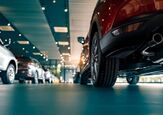German Automakers Will Make More Cars In America

With trade tensions bubbling, European automakers are preparing for potential tariffs from the U.S., forcing companies like Audi and Mercedes-Benz to rethink their production strategies. Both brands want to increase North American manufacturing to sidestep the threat of higher import duties under President Donald Trump’s proposed policies.
Key Points
- Audi plans its first U.S. production site, while Mercedes-Benz expands output in Alabama to avoid potential U.S. tariffs.
- Proposed 25% U.S. import tax would hit European carmakers hard, with Volkswagen, BMW, and Mercedes accounting for 73% of EU car exports to the U.S.
- BMW’s CEO urges the EU to lower tariffs on U.S.-built cars from 10% to 2.5%, aligning with U.S. import rates
Audi, which currently has no manufacturing presence in the United States, has confirmed plans to build its most critical U.S.-market models in North America. CEO Gernot Döllner told Reuters the company will announce a specific production site later this year. Meanwhile, Mercedes-Benz is planning to expand output at its plant in Tuscaloosa, Alabama, in an effort to localize more production.
Trump’s tariff threats include a proposed 25% tax on imported vehicles, as well as confirmed tariffs on aluminum, steel, and semiconductors. European automakers are already dealing with high costs at home and increasing competition from Chinese brands. Further financial strain from import tariffs could significantly impact their profitability in the U.S. market.
European carmakers exported roughly 800,000 vehicles to the U.S. last year, far outpacing the number of American-made cars shipped to Europe. It's this imbalance that makes the German automakers vulnerable to tariff hikes.
BMW is the lone standout±—the company manufactures a large number of U.S. market vehicles at its Spartanburg, South Carolina, facility, of which approximately 90,000 units are shipped to Europe each year. BMW says it does not see a need to negotiate exemptions from U.S. tariffs.
BMW CEO Oliver Zipse has urged the European Union to consider lowering its 10% tariff on U.S.-built vehicles to 2.5%, aligning with the rate the U.S. currently applies to European car imports. A reduction in EU import duties would benefit BMW directly, given its export volume from South Carolina.
Become an AutoGuide insider. Get the latest from the automotive world first by subscribing to our newsletter here.

An experienced automotive storyteller and accomplished photographer known for engaging and insightful content. Michael also brings a wealth of technical knowledge—he was part of the Ford GT program at Multimatic, oversaw a fleet of Audi TCR race cars, ziptied Lamborghini Super Trofeo cars back together, been over the wall during the Rolex 24, and worked in the intense world of IndyCar.
More by Michael Accardi



































Comments
Join the conversation